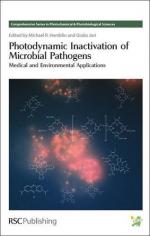|
This section contains 3,116 words (approx. 11 pages at 300 words per page) |

|
A pathogen is an agent that causes disease. The agent usually is a microorganism, such as a fungus, bacterium, or virus. The most numerous and prominent pathogens of plants are the fungi, but many plant diseases are also caused by bacteria and viruses. Although the diseases caused by phytoplasmas are similar to those caused by viruses, these pathogens are actually a kind of bacterium. A few diseases are caused by viroids, agents that are similar to but are even simpler than viruses. Other pathogens include nematodes (roundworms), which attack many types of plants, and 2,500 species of angiosperms that live parasitically on other plants. Relatively few of the angiosperms are economically important pathogens.
A pathogen usually initiates disease by parasitizing a host, that is, taking its organic nutrients. However, in a few cases the host actually benefits by the presence of the parasite. Mycorrhizal fungi attack roots and live...
|
This section contains 3,116 words (approx. 11 pages at 300 words per page) |

|


